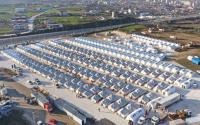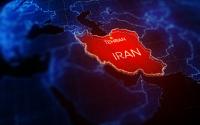7 January 2005Yahoo NewsCiaran Giles
Spain's Defense Ministry ordered the house arrest Saturday of a senior officer who warned that the armed forces might have to intervene if the northeastern region of Catalonia went too far in its efforts toward greater self-government.
The comments by army Lt. Gen. Jose Mena Aguado to fellow officers in a speech Friday in Seville triggered memories of military uprisings and coups in Spain's past.
In a statement Defense Minister Jose Bono, who met with Mena on Saturday, ordered the officer held under house arrest for eight days while his dismissal is processed.
In the speech, Mena warned of the "serious consequences for the armed forces, as an institution, and its members if the Catalan charter is approved in its current terms."
He cited a clause in the Spanish constitution that calls on the armed forces to intervene if needed to guarantee the unity, independence and sovereignty of Spain, although he did not specify how he thought the armed forces should intervene.
Gen. Francisco Franco rebelled against Spain's democratic republican government in 1936, triggering the Spanish Civil War. He then ruled Spain between 1939 and his death in 1975. In 1978, three years after the return to democracy, paramilitary Civil Guards attempted a coup, which was quashed after King Juan Carlos ordered troops back to their barracks.
Mena's remarks were a direct reference to negotiations for a new charter for the region of Catalonia which have dominated political debate in Spain. The Catalan regional government, based in Barcelona, is demanding far-reaching political and fiscal powers and also to be recognized as a nation.
The Basque region is also seeking to revamp its charter.
Most parties dismissed the general as being out of touch with reality.
"Spain's military establishment still hasn't undergone the democratic recycling that is imperative," said Josu Erkoreka, spokesman for the Basque National Party in parliament.
The leading daily El Pais pointed out that Mena seemed unaware that the constitution stated that it was the government and parliament — not the armed forces — who should determine if the country is in danger.
Only the right wing Popular Party, the most vociferous opponent of the Catalan charter, pulled back from condemning the officer, saying his comments were the logical result of the uncertainty triggered by the charter debate.
Mena, 63, was due to retire in March after more than 40 years' service.






